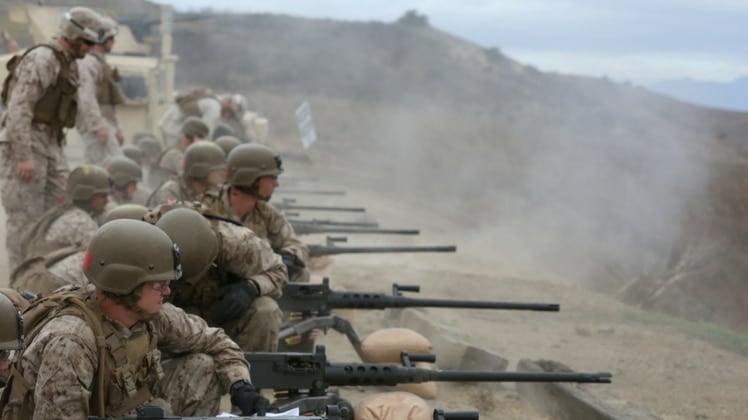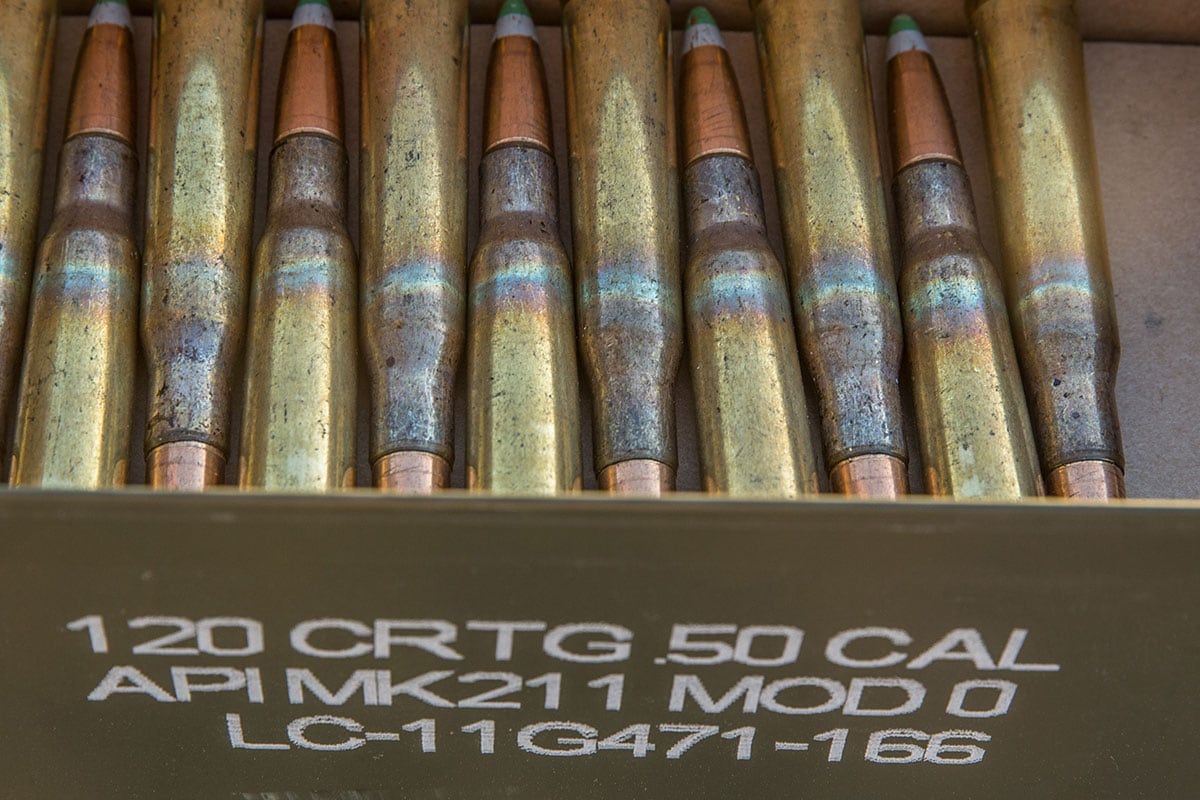Your next belt of .50-caliber ammunition could weigh up to 30 percent less than it does now if industry representatives are able to meet the needs of a recent Marine Corps request.
Marine Corps Systems Command, the authority in charge of pretty much all the Corps’ gear needs, put out a Request For Information in late April asking ammo-making companies to lighten the load of the bullets that make the venerable “Ma Deuce” .50-caliber machine gun sing.
This is one small move in a larger, decades-long effort to lighten the battle load across the board for Marines and soldiers — an initiative given new life by a secretary of defense-pushed task force on close combat lethality.
RELATED

A belt of 100 lightweight .50-caliber cartridges with 101 links needs to shave 15 to 30 percent, or more than 20 pounds to qualify for the RFI that Marines have put out.
And any new cartridge configuration must live up to the same requirements of the current M33 projectile, according to the FedBizOpps posting.
The posting doesn’t tell companies what materials are required to shave off that fat.

Some companies have produced polymer cartridge casings rather than the traditional brass ones. Those give a substantial weight savings per cartridge.
Many Marines already use a polymer magazine made by Magpul instead of the traditional metal magazine, which also shaves some ounces.
Historically, there have been issues with polymer moldings in extreme cold weather conditions. Marines are shifting some equipment, training and troops to a cold weather fight in Europe, increasing partnerships and presence in Norway, specifically in the past few years.
Todd South has written about crime, courts, government and the military for multiple publications since 2004 and was named a 2014 Pulitzer finalist for a co-written project on witness intimidation. Todd is a Marine veteran of the Iraq War.





